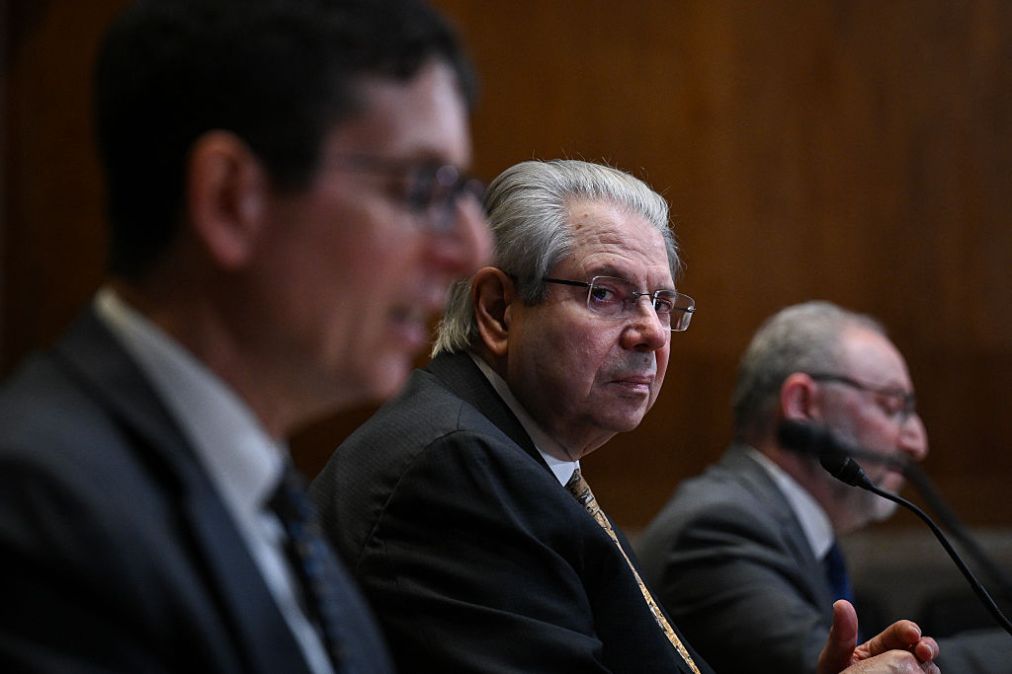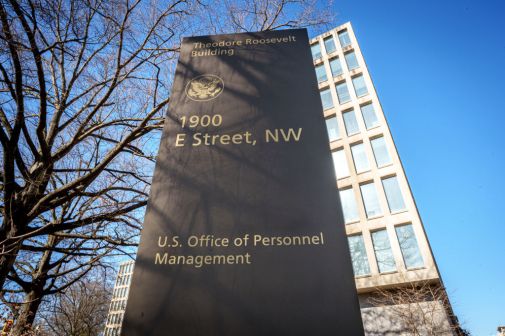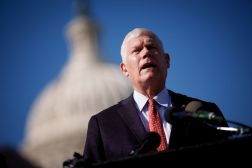Watchdog identifies $100B in potential government cost savings

As DOGE continues its decimation of the federal workforce, grinds various operations to a halt and touts dubious cost-savings claims, the congressional agency with deep experience rooting out fraud, waste and abuse in government released a litany of recommendations Tuesday that it says could save the public tens of billions of dollars.
The Government Accountability Office’s 15th annual report on federal programs that have “fragmented, overlapping, or duplicative goals or actions” identified 148 cost-cutting measures across 43 topic areas, delivering a playbook to Congress and federal agencies aimed at lowering costs, improving programs and increasing revenues.
Comptroller General Gene Dodaro said in a press release that the GAO’s updated report details “new and meaningful opportunities to save federal funds across a wide range of programs.”
“By addressing this year’s updated list, as well as open recommendations to both agencies and Congress from GAO’s past work, the federal government could potentially save an additional” $100 billion, he added.
The watchdog said its recommendations have generated roughly $725 billion in cost savings and revenue increases. Its latest slate zeroes in on some familiar targets for “fragmentation, overlap, and duplication topic areas,” including information technology across the federal government.
According to the GAO, the Office of Management and Budget and 24 federal agencies could save at least $100 million by implementing various requirements and reviews to eliminate duplicative IT purchases and cancel investments.
The GAO offered a specific recommendation to the Department of Health and Human Services to identify and reduce duplicative pandemic health IT systems, and it pushed the Office of the National Cyber Director to lead a “comprehensive national quantum computing cybersecurity strategy to better manage fragmentation and the potential overlap of agency efforts.”
The watchdog sees other cost savings and “revenue enhancement” opportunities in federal IT, pointing out unresolved issues with modernization efforts at the Census Bureau, with the Department of Homeland Security’s financial systems, with the Department of Interior and Bureau of Land Management’s oil and gas systems, with the Small Business Administration’s certification system, and with governmentwide software licensing practices.
“While significant work remains, Congress and federal agencies have made strides on these issues,” the GAO said in a statement. “As of March, they had fully or partially addressed 1,590 (about 78 percent) of the 2,049 matters and recommendations that GAO identified from 2011 to 2025. Since last year’s report, GAO identified about $57 billion more in savings from continuing work on these efforts, bringing the total level of government savings to $725 billion.”
The GAO seemed poised to assume a more public role in its work following President Donald Trump’s election and Elon Musk’s infiltration of federal agencies. The world’s richest man began highlighting GAO reports on X and shouting from the rooftops about the trillions of dollars DOGE intended to save, including on government IT services.
But it took several weeks for the watchdog to hear more than a peep from DOGE, which last month claimed $160 billion in savings — a figure that some dispute and is far off from Musk’s initial $2 trillion goal.
Despite DOGE falling well short of its own targets — and leaving a trail of destruction in its “chaotic and haphazard” wake — Dodaro shared some positive notes on the tech collective’s work during an appearance before Congress last month.
“They’ve opened up some data barriers that had been preventing the federal government from detecting improper payments and fraud,” the top GAO official told Senate Appropriations Committee lawmakers. “So there’s some benefits. I don’t want to imply that … there’s just concerns.”






